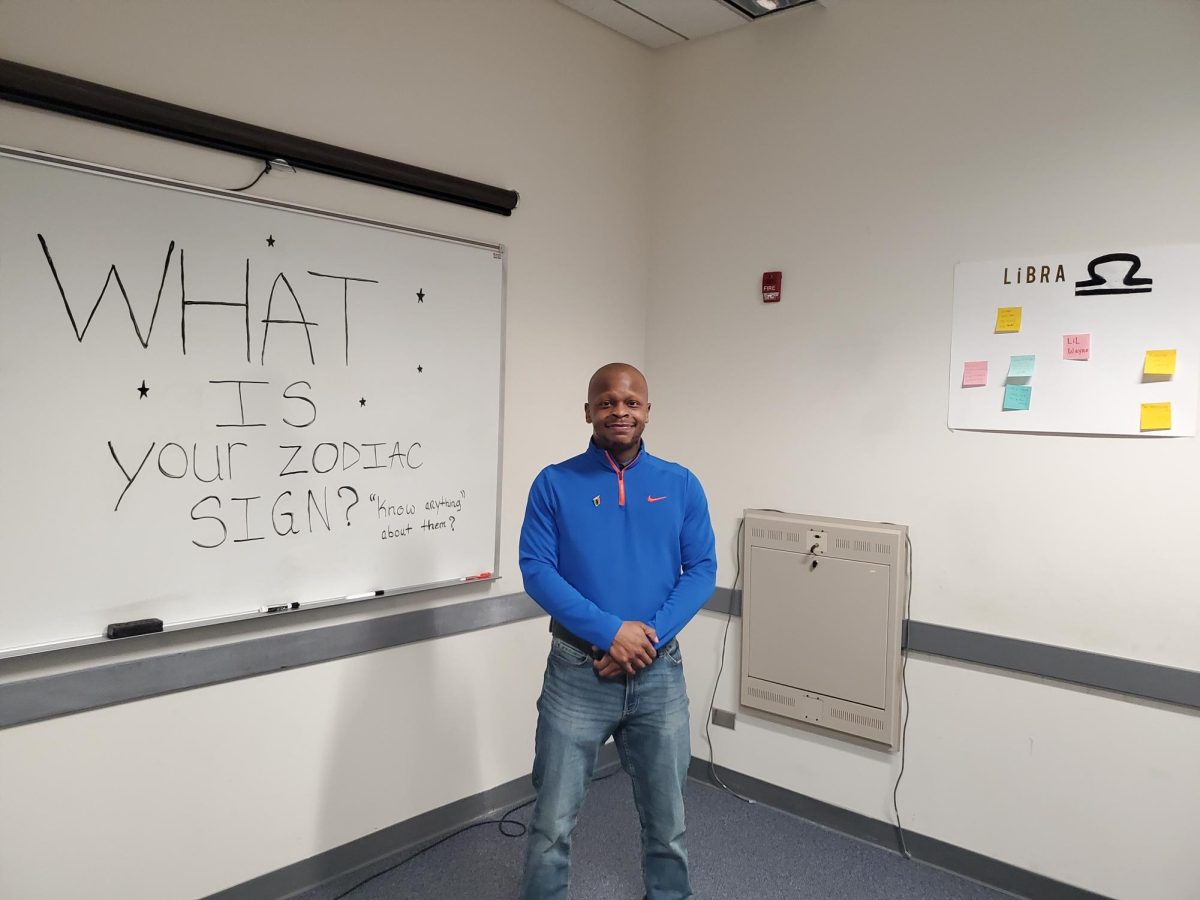By Chris Weber, Phoenix staff writer
In early March, Malcolm Banks and My’Anna Perdue invited participants to explore Hellenistic astrology in a post-pandemic world.
The two students created a space for questioning and discovering the meanings behind zodiac signs. GSU community members wandering D-building halls could serendipitously find themselves in a place focused on ancient answers from the night sky. As you might have guessed already, “Written in the Stars” was a class project.
Participants in the project were asked to write notes and stick them to a poster corresponding to their Zodiac sign as part of the experience. Banks and Perdue were on hand to answer questions and provide information about the exhibit.
The Governors State Theatre and Performance Studies department is hosting this series of interactive art installations this March and April. These week-long installations showcase the innovative work of students from the Performance Art program. Guided by Artistic Director and Professor Dr. Patrick Santoro, students engage the public in a hands-on exploration of process-based art making.
The series, held in room D1497 from 8:30 a.m. to 5 p.m., Monday through Friday, features a variety of themes designed to provoke thought, interaction, and conversation among viewers.
Read on for a list of the upcoming installations:
“Brotherhood: A Journey of Unity and Connection” (March 18-22): Marquis Parks and Joshua Tisdale share the story of their friendship and mutual support through their art.
“Chance” (March 25-29): Christopher Greer and Josiah Scott will create an interactive experience that explores the concept of chance through a unique activity.
“Canvas Chronicles: A Live Painting Experience” (April 8-12): Alia Thomas and Eboni Williams designed a journey of self-discovery, inviting visitors to contribute to a live, evolving painting.
“Black America: The Soul, The Culture” (April 15-19) is an immersive installation by Jazmin Butler, Dakota Keel, and Xavier Thompson that aims to engage visitors in a reflective conversation on Black culture.
For more information, email Dr. Santoro.

